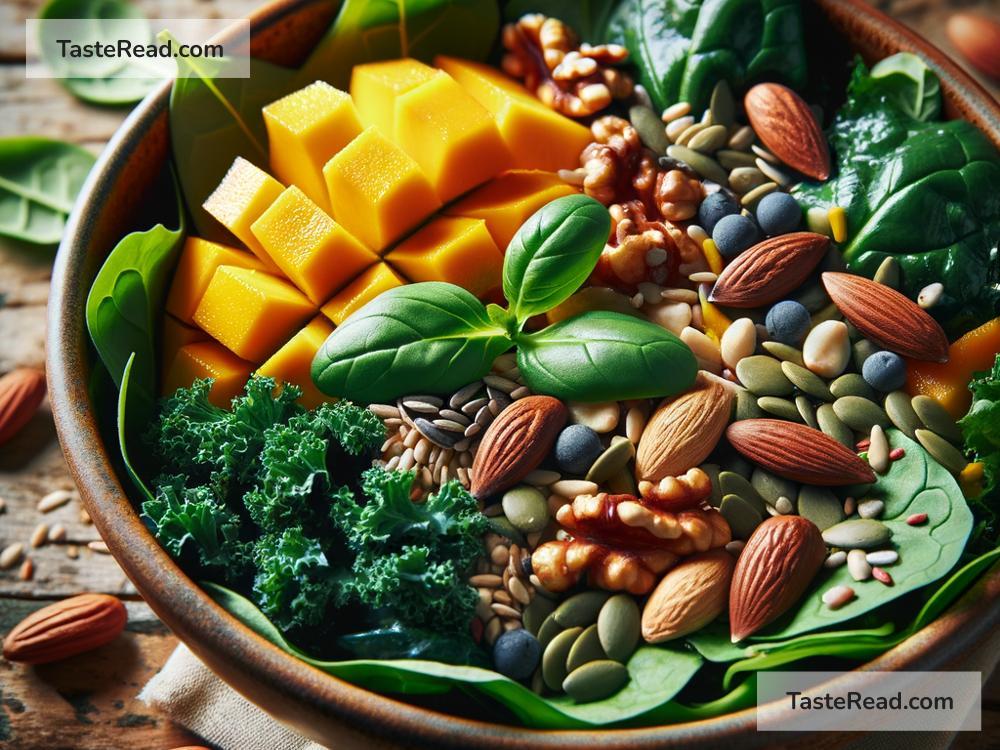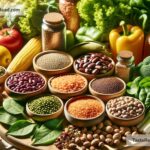The Importance of Manganese in Nutrition
When you hear the word “manganese,” you might think it sounds like something out of a chemistry class. But did you know that manganese is a key nutrient your body needs? It’s a mineral that plays a big role in keeping your body working smoothly, even if you don’t hear about it as often as calcium or iron. Let’s dive into why manganese is important and how you can make sure you’re getting enough of it through your diet.
What Is Manganese?
Manganese is a trace mineral, meaning your body only needs small amounts of it to stay healthy. Even though it’s needed in smaller amounts compared to other nutrients, it’s absolutely essential for your body to function properly. Manganese helps with many important tasks, including keeping your bones strong, helping your body process nutrients, and supporting your brain’s everyday functions.
This mineral is found naturally in many foods, but because of its lesser-known status, people don’t always think about it. That’s why it’s worth learning more about manganese and its role in nutrition.
Why Is Manganese Important?
Manganese is a multitasker inside your body. Let’s look at some of the key ways this little mineral supports your health:
1. Bone Health
Manganese works alongside other minerals like calcium to help build and maintain strong bones. It is especially important during your growing years or as you get older, as strong bones help prevent fractures and osteoporosis. Without enough manganese, your bones might not develop or stay as sturdy as they should.
2. Helps Break Down Nutrients
Your body needs manganese to break down other important nutrients like carbohydrates, fats, and proteins. This process is called metabolism. Think of manganese as a helper that makes sure your body can turn the food you eat into energy it can use.
3. Antioxidant Role
Manganese is a key part of a special enzyme called manganese superoxide dismutase. This enzyme is important because it helps your cells fight damage caused by free radicals. Free radicals are unstable molecules that can harm your cells and lead to health problems over time, such as aging and chronic diseases. Manganese’s antioxidant role helps protect your body from this type of damage.
4. Supports Brain Function
Your brain is one of the busiest organs in your body, and it relies on manganese for smooth functioning. Manganese helps regulate neurological processes, meaning it plays a role in how your brain communicates with the rest of your body. While research is still ongoing, getting enough manganese may also be linked to better memory and cognitive health.
5. Wound Healing
If you get a cut or scrape, the healing process depends on many nutrients working together—manganese is one of them! Manganese helps produce collagen, which is a protein that gives skin its structure and helps wounds heal.
How Much Manganese Do You Need?
The recommended daily amount (RDA) of manganese varies by age, gender, and life stage:
- Adults (19 years and older): Around 2.3 mg/day for men and 1.8 mg/day for women.
- Children: Ranges from 1.2 to 1.6 mg/day depending on age.
- Pregnant or Breastfeeding Women: Slightly higher (about 2.0 to 2.6 mg/day).
Since manganese is a trace mineral, the good news is that you don’t need to eat large amounts to meet your daily needs.
What Foods Contain Manganese?
Many foods naturally contain manganese, so most people can get enough by eating a balanced diet. Here are some of the best sources:
1. Whole Grains
Brown rice, oats, and whole wheat are rich in manganese. Switching from refined grains to whole grains is a great way to boost your manganese intake while also improving overall nutrition.
2. Nuts and Seeds
Almonds, hazelnuts, pumpkin seeds, and sunflower seeds are loaded with manganese. They make excellent snacks and are also great in recipes like trail mix or smoothies.
3. Leafy Green Vegetables
Spinach, kale, and other leafy greens aren’t just good for vitamins—they also provide manganese to your body.
4. Fruits
Pineapple, blueberries, and bananas are tasty options that contain manganese. Adding these fruits to your breakfast or snacks is an easy way to incorporate more manganese into your diet.
5. Legumes
Beans, lentils, and chickpeas are affordable, versatile sources of manganese that you can enjoy in soups, salads, or dips.
What Happens If You Don’t Get Enough?
Deficiency in manganese is rare because it’s found in so many foods. However, not getting enough can lead to weak bones, poor wound healing, fatigue, and other health issues. On the other hand, too much manganese, usually from supplements or environmental exposure, can sometimes cause problems like neurological symptoms, so balance is key.
The Bottom Line
Manganese may not get as much attention as other nutrients, but it’s essential for keeping your body healthy. From strong bones and better metabolism to brain function and antioxidant protection, this trace mineral does a lot of heavy lifting.
Luckily, it’s easy to get manganese from your diet by eating foods like whole grains, nuts, leafy greens, and fruits. By including a variety of these foods in your meals, you can support your body’s needs without much extra effort. So the next time you plan your meals or snacks, remember to include manganese-rich options. Your body will thank you for it!


